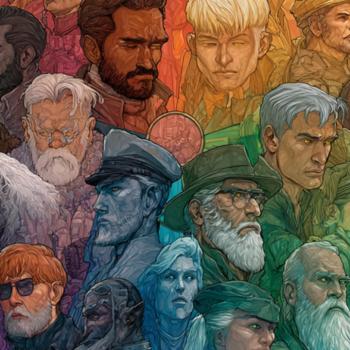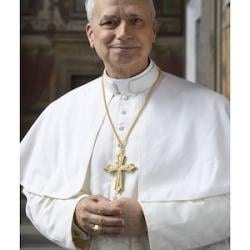
This is an interesting question because Christmas is a Christian holiday, and Muslims are not Christians. However, as is well known, many non-Christians celebrate Christmas as a secular (rather than religious) holiday. In fact, in 2013, the Pew Research Center released a study titled “Christmas also celebrated by many non-Christians,” in which they pointed out that “81% of non-Christians in the United States celebrate Christmas.” 81%! That’s more than most of us would predict. The Pew study noted:
“…roughly three-quarters of Asian-American Buddhists (76%) and Hindus (73%) celebrate Christmas. In addition, our recent survey of U.S. Jews found that about a third (32%) had a Christmas tree in their home last year. And some American Muslims celebrate both the religious and cultural aspects of Christmas, according to news reports.
Although Christians and non-Christians alike celebrate Christmas, the new survey shows they have differing views of the holiday. Two-thirds of Christians (65%) say Christmas is mostly a religious holiday, while most non-Christians see the holiday as more of a ‘cultural’ event than a religious occasion.”
So, certainly there are Muslims who celebrate Christmas but, as one might expect, a sizable percentage do so for cultural rather than religious reasons.
Jesus in Islam
As our Answers series question, “Do Muslims Believe in Jesus Christ?” points out, Jesus is a very important figure in Islam. They see him as a restorer of religious truths which had been lost or corrupted after being given to the Jews by God. They believe he was a Muslim, even though he lived many hundreds of years before the prophet Muhammed. While Islam rejects the Trinity, they do believe Jesus was one of the greatest of all of God’s prophets—and a miracle worker who healed the deaf and blind, and who even raised the dead. Islam even accepts the idea that one of the “signs” of the “end times” will be the second coming of Christ—a Christian doctrine which they also accept as part of their theology. Because of all of this, there are Muslims who celebrate Christmas for its religious connotations rather than primarily for its secular trappings. As one Muslim, who celebrates Christmas, pointed out: "Celebrating Christmas is not really a contradiction to Islam because Jesus is our prophet, too." Of course, not all Muslims would agree and, indeed, some would outright reject this approach, regardless of how important Jesus is in Islam.
"‘It would be typical of mosques to have a sermon on Jesus at this time of year, praising him as one of the great prophets but distinguishing Muslim belief from Christian belief, as Muslims must believe and love Jesus Christ as a prophet…,’ says Ihsan Bagby, an Islamic Studies professor at the University of Kentucky who researches American mosques. ‘But in terms of practice and observation of Christmas, that's an on-going debate among Muslims.’"
Thus, while the Christmas season is one in which most Muslims would feel comfortable putting additional emphasis on the prophet Jesus, sermonizing him and emphasizing his important role in the Islamic faith, some will also see this as a time to point out errors in Christian thinking about Jesus, rather than getting caught up in the popular trappings of trees and tinsel. That being said, Christmas is about the birth of Christ, and Islam emphatically believes in the virgin birth of Jesus. (See Sūrah 19:16-21)
Officially Speaking
As with so much in religion, one must distinguish between “official” practice or doctrine as opposed to cultural practices and colloquial beliefs. Formally speaking, “Islamic doctrine is strictly monotheistic and some Muslim scholars view any significant celebration of any prophet as risky. Nonetheless, in many Muslim countries, large celebrations mark Mawlid, the lunar holiday for the birth of the Prophet Muhammad, so celebrating Jesus isn't without precedent.” In the end, Christmas is not an Islamic holiday. Islam, as a religion, does not encourage the celebration of it, nor does it formally recognize the holiday. You may know some Muslims who choose to commemorate the holiday—for secular or even religious reasons—but that would be a personal choice, and not something formally encouraged by their tradition.
5/16/2024 4:31:18 PM








